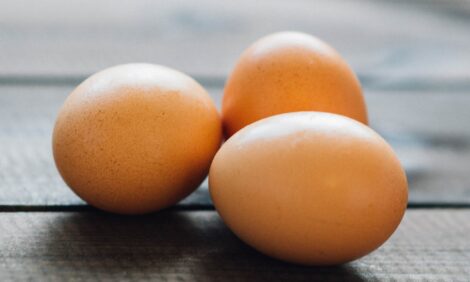



Ministry Takes Rap for Cheap Chicken Imports
JAMAICA - Jamaican chicken meat producers have come out strongly against the Ministry of Agriculture's decision to allow the importation of cheap chicken parts to satisfy demand during the Christmas holiday season.The producers contend that there is no shortage of the meat on the market, and complain that the imports will threaten the livelihood of chicken farmers.
The agriculture ministry recently announced plans to import approximately 25 containers of chicken quarters to offset what it said was expected higher demand over the Christmas season.
According to The Jamaica Observer, the ministry's action will ensure cheaper chicken meat alternatives for consumers.
The price of chicken meat has not been reduced locally since the world price of wheat and corn began a downward trend in the latter part of the year and a reduction in the price of chicken parts in the coming year, meat processors say, is also uncertain.
"It takes time for that to come through the system," Chris Levy, vice-president of Jamaica Broilers (JB) noted yesterday, adding that there were factors negating a reduction in chicken prices in the short term. He said that the exchange rate, now at 80 to one, and the recent increase in interest rate by the Bank of Jamaica did not paint a rosy picture.
Meanwhile, the National Poultry Growers Co-operative Society (NPGCS) urged the ministry to reconsider the granting of the import permits.
"Poultry farmers are of the opinion that the industry has built the productive capacity to meet all of the country's needs for poultry, even during high-demand periods such as Christmas," NPGCS president Dean Lee said in a statement yesterday evening.
Lee argued that the importation of chicken leg quarters would lead to a reduction in demand for all locally produced animal protein products - pork, beef and mutton.
"Farmers across the entire spectrum are likely, therefore, to feel a negative impact from the importation," he said. The multiplier effect of the fallouts is also likely to be felt by businesses in communities in which these farmers live."
Lee added that a determination had to be made whether the chicken industry, a major contributor to Jamaica's Gross Domestic Product - and which is also an important part of ensuring the nation's food security - was worth protecting.
JB, the island's leading chicken meat processor, also supported the view that there is no need to import the meat.
"We have no shortage of chicken. We have very good inventory to take us through the Christmas season," Levy said. "There is no need to import the meat."
Levy said that the agriculture ministry had consulted with his company about the importation of chicken meat and were advised that local production was adequate for the season.
"They went ahead (with the importation) anyway," said Levy.
And Caribbean Broilers (CB Chicken), the island's other leading chicken-meat producer, also supported JB's position that adequate supplies were available in the island.
Dominique Rose, sales manager of CB Chicken, said that her company increased production in anticipation of the higher demand during the season.
"We have met our targets and we do not anticipate a shortage," Rose declared.
But Agriculture Minister Christopher Tufton told the Observer last evening that the imports were based on numbers supplied by the processors that revealed a huge shortfall - approximately two million kilogrammes - this year against last year's production numbers. He added that the imported chicken parts would attract a 40 per cent duty to allow for local producers to compete while offering an alternative to the consumer. "It is good for the consumer," said Tufton, adding that the imports would not continue after the Christmas season.











